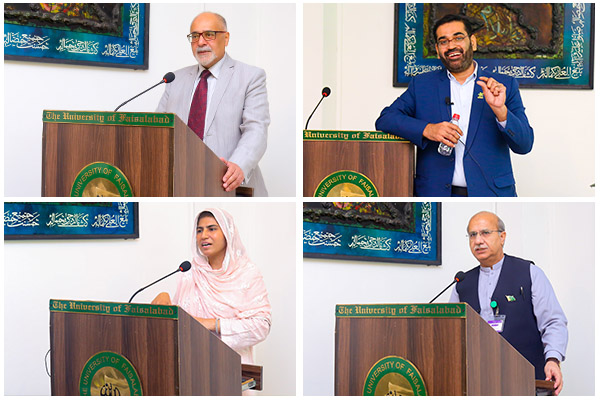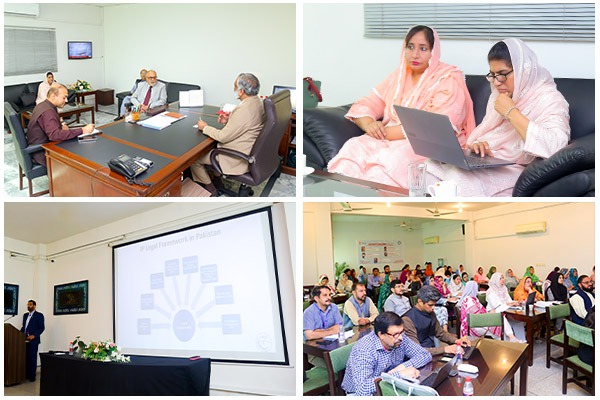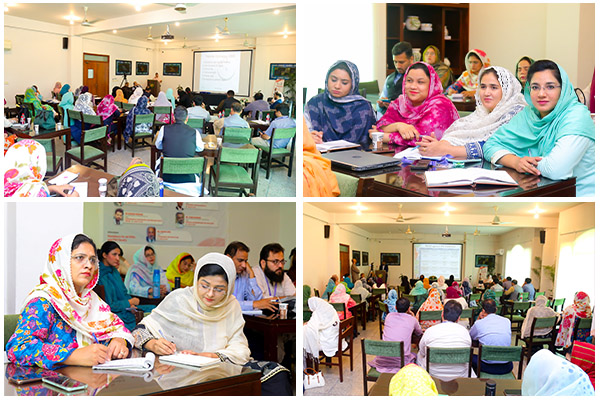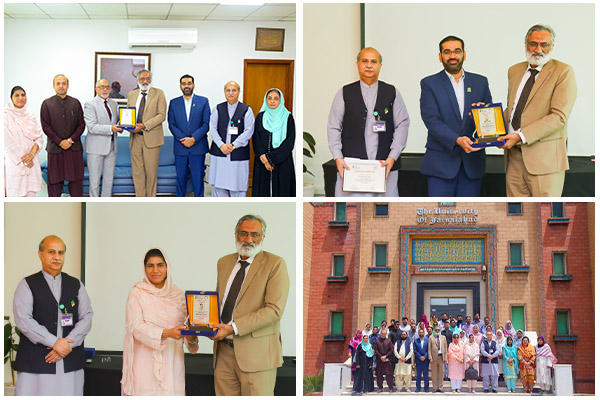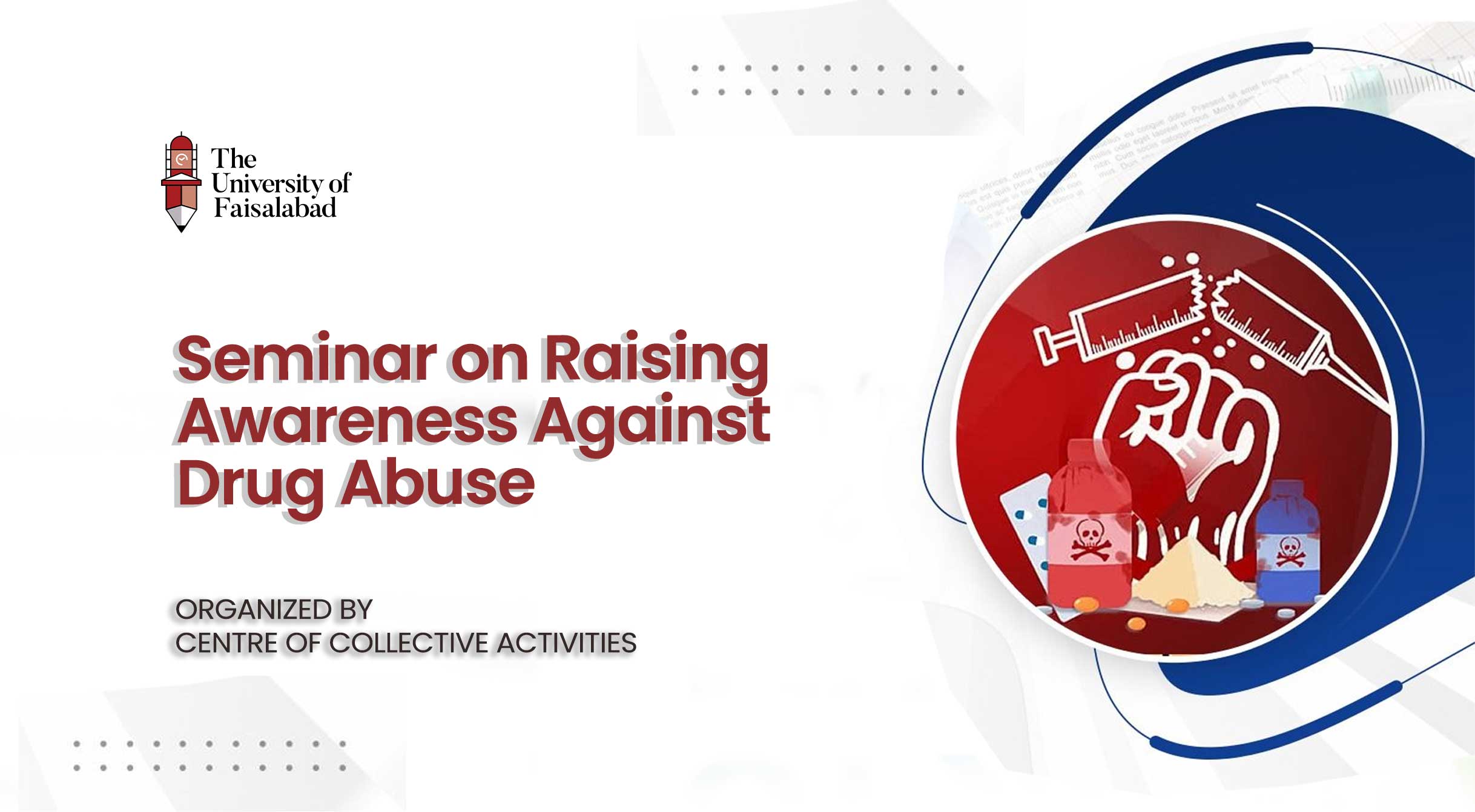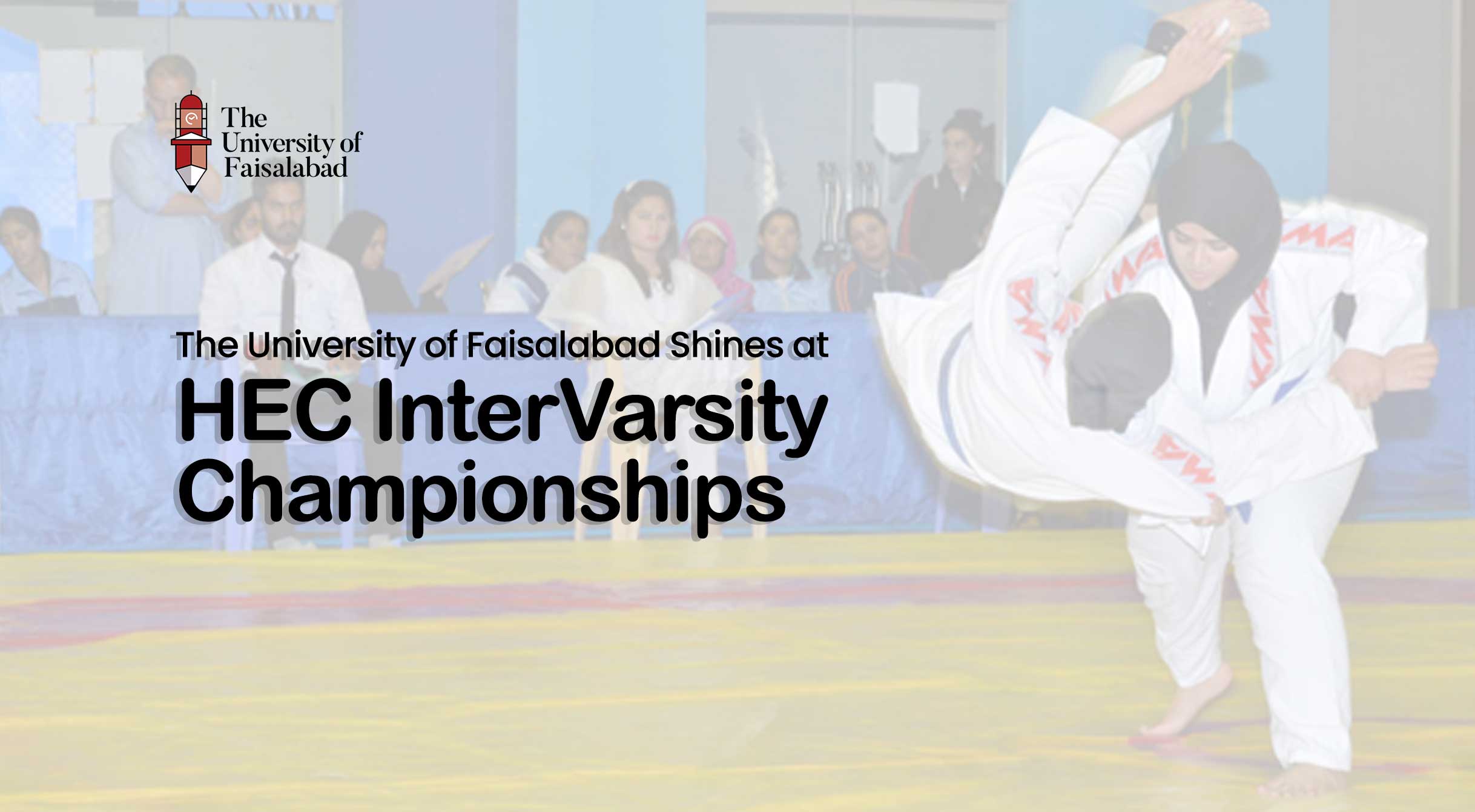
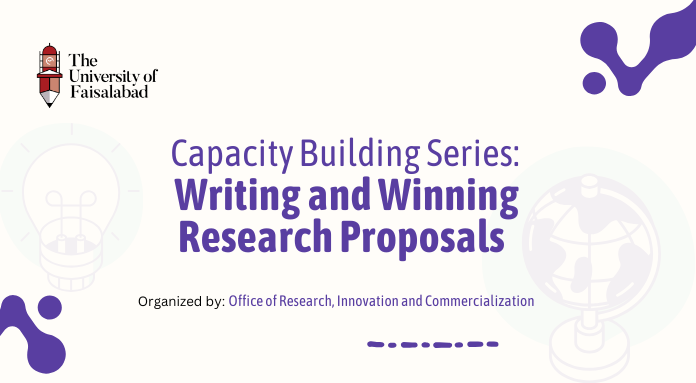
Publications
Quality Education
Capacity Building Series: Writing and Winning Research Proposals
The Office of Research, Innovation and Commercialization (ORIC), The University of Faisalabad, successfully organized the first session of its Capacity Building Series, focusing on writing and winning Research Proposals on August 4, 2025.
The event commenced with a warm welcome address by Prof Dr Aman Ullah Malik, Rector, who emphasized the importance of building a strong research culture through consistent faculty development and capacity-building efforts.
The training session was led by our distinguished guest speaker, Prof Dr Tariq Mahmood, Ex-Vice Chancellor, University of Narowal, former Member (R&D), HEC, who provided a detailed and practical overview on how to structure, write and win competitive research proposals. His session offered insights on proposal design, funding strategies and common pitfalls to avoid.
The session concluded with closing remarks by Prof Dr Aman Ullah Malik, Rector, The University of Faisalabad, who appreciated the ORIC team for organizing the event and encouraged faculty members to strengthen interdisciplinary and collaborative research initiatives.
This session reflected TUF’s ongoing commitment to academic excellence, interdisciplinary collaboration and research-driven progresses.
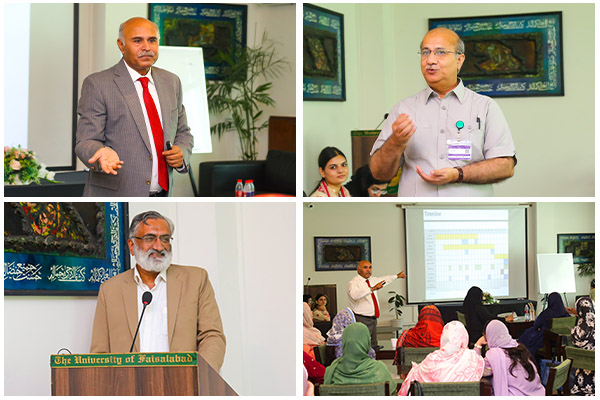
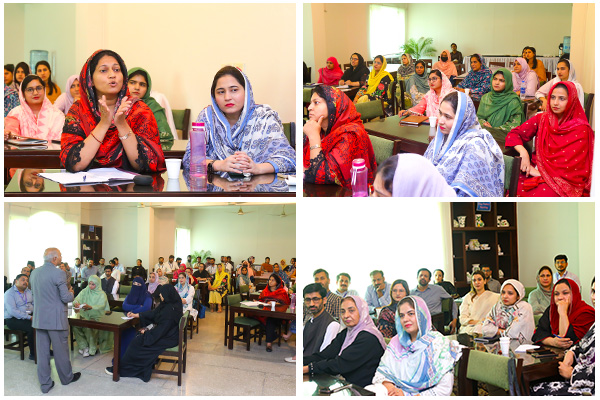
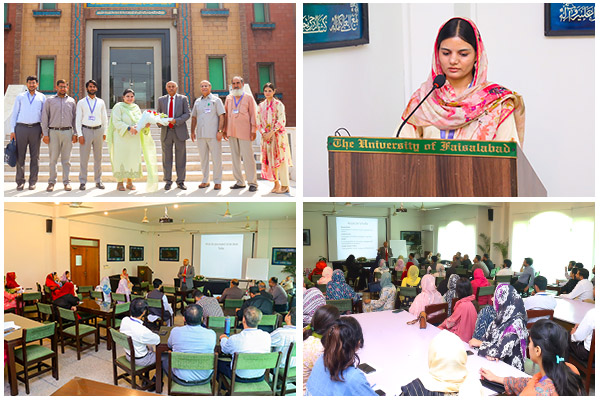
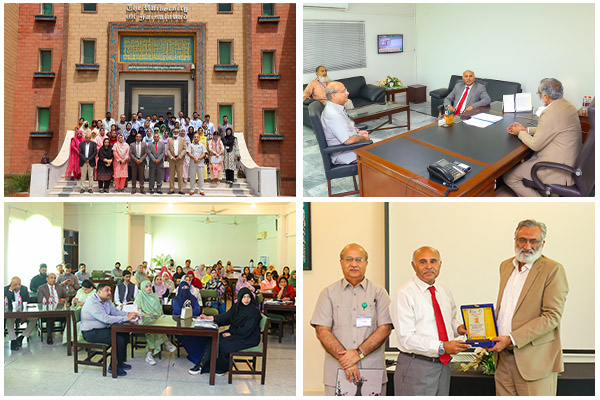
The second session of its Capacity Building Series on “Execution of Approved Projects" began with a welcome address and an introduction of the guest speaker by Prof Dr Zahir Ahmad Zahir, Director ORIC, who emphasized the importance of efficient project execution and acknowledged the significant contributions of Prof Dr Muhammad Imran Arshad to research.
Prof Dr Aman Ullah Malik, Rector, The University of Faisalabad, officially inaugurated the session, highlighting the university’s commitment to faculty development and research excellence.
Prof Dr Muhammad Imran Arshad, In-Charge Dean, Faculty of Health & Pharmaceutical Sciences and Director ORIC at UAF, delivered an insightful session covering project implementation, monitoring, compliance, and reporting, offering practical strategies for achieving successful research outcomes.
The session concluded with closing remarks from Prof Dr Zahir Ahmad Zahir, appreciating the faculty's engagement and reaffirming ORIC’s dedication to supporting high-impact research initiatives.
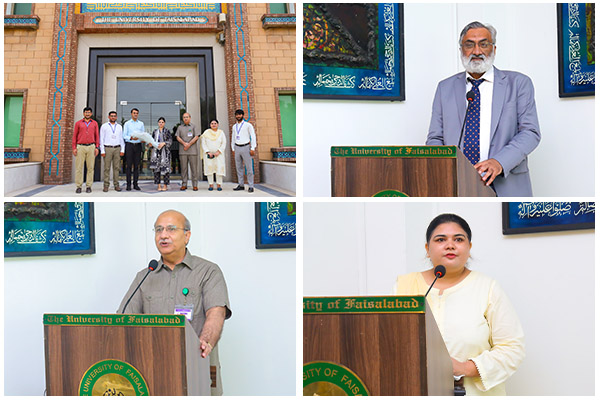
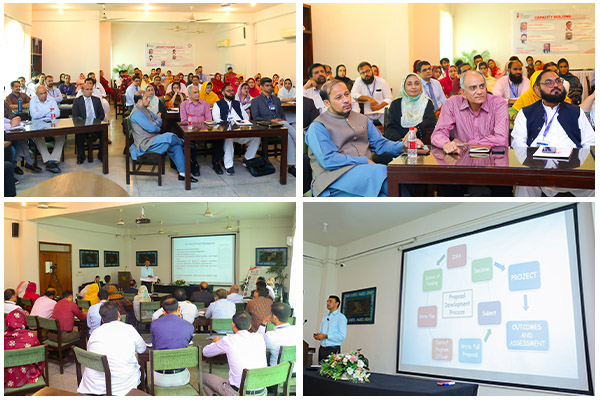
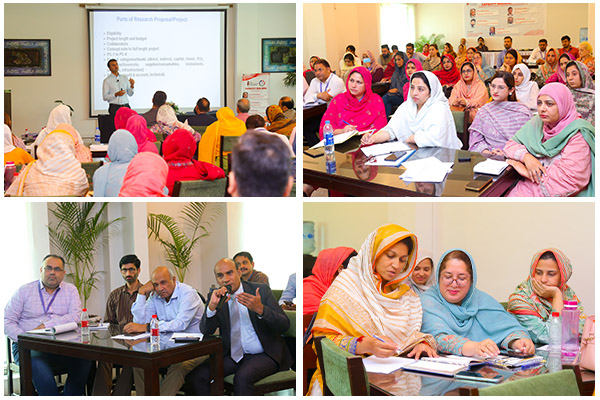
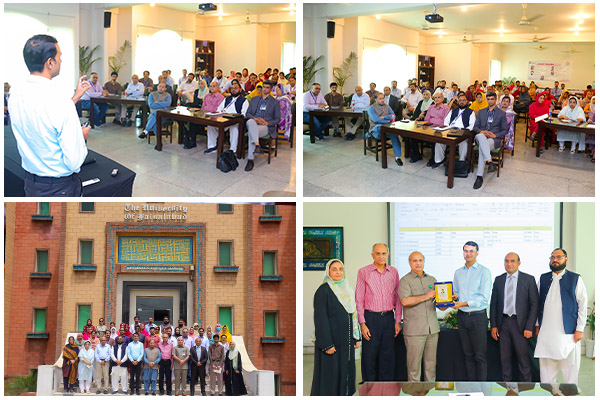
The third session of its Capacity Building Series, titled "From Research to Recognition: Mastering High-Impact Writing."
The session commenced with a welcome address and the introduction of the guest speaker by Prof. Dr. Zahir Ahmad Zahir, Director ORIC, The University of Faisalabad.
Following the introduction, Prof. Dr. Aman Ullah Malik, Rector, The University of Faisalabad, officially welcomed the guest and inaugurated the session. He highlighted scientific writing as a key to academic recognition, global visibility, and impactful research, encouraging faculty to enhance their writing skills to meet international standards.
The training session was led by Dr. Saddam Hussain, Dean, Confucius Institute, University of Agriculture, Faisalabad, who provided insights into strategies for publishing in high-impact journals, structuring manuscripts effectively, and establishing a strong global research presence through scholarly writing and collaboration.
The session concluded with remarks by Prof. Dr. Aman Ullah Malik, Rector TUF, who appreciated the insightful discourse and encouraged the faculty to translate their learning into impactful research contributions.
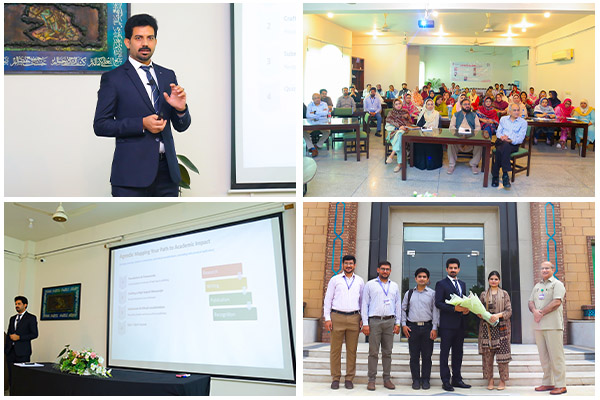
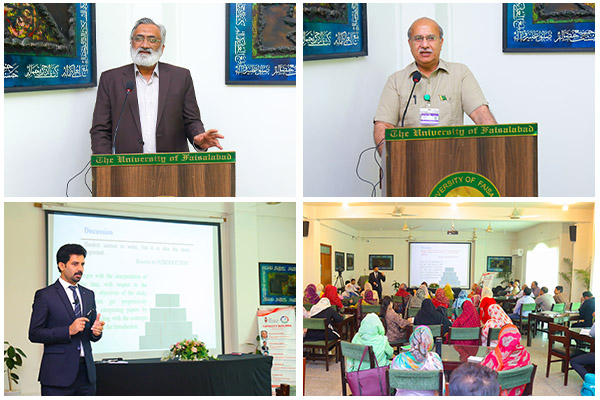
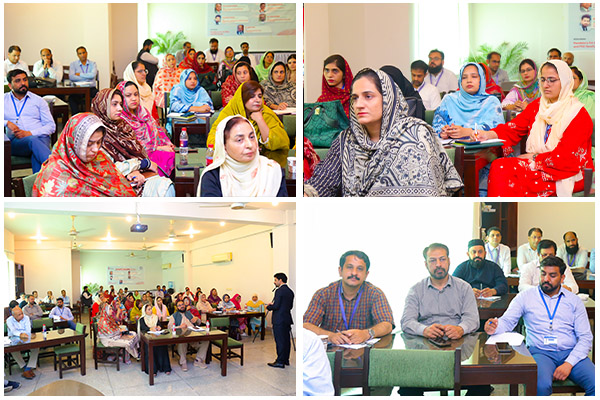
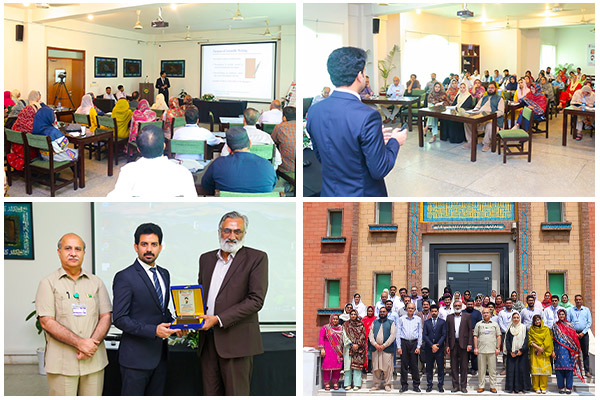
The fourth session of this Capacity Building Series, focused on the theme "Research, Entrepreneurship and Consultancy.
This session began with a welcome address and guest introduction by Prof Dr Zahir Ahmad Zahir, Director ORIC, highlighting the role of research in driving innovation and consultancy. Prof Dr Aman Ullah Malik, Rector, TUF, formally inaugurated the session and stressed the importance of entrepreneurial thinking in academic environments.
Mr Tahir Mahmood Chaudhary, President & CEO of the Pakistan Institute of Entrepreneurship, led the session and shared insights from his 25+ years of experience in digital innovation, SME development, and strategic leadership. He encouraged faculty to translate research into practical, market-oriented solutions.
In his closing remarks, Prof Dr Zahir Ahmad Zahir thanked the guest and faculty, reaffirming ORIC’s commitment to promoting research with real-world impact.
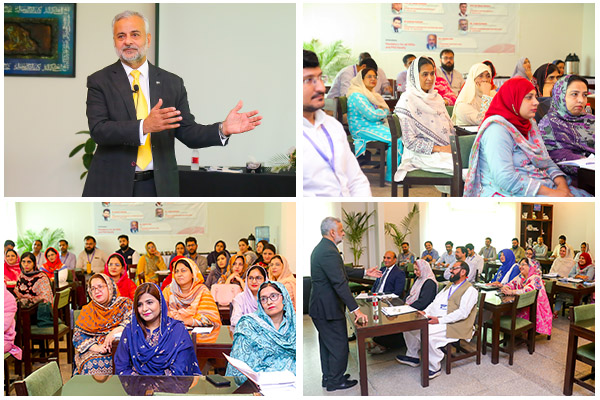
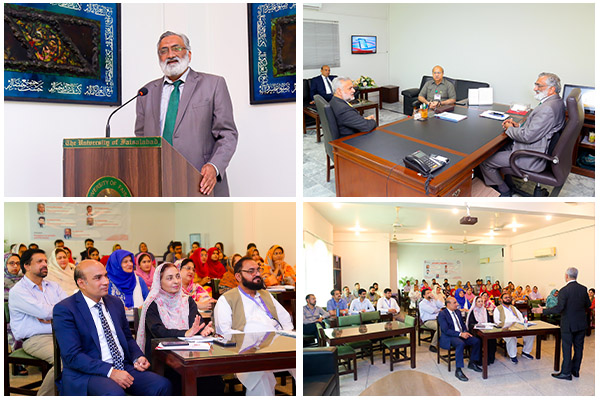
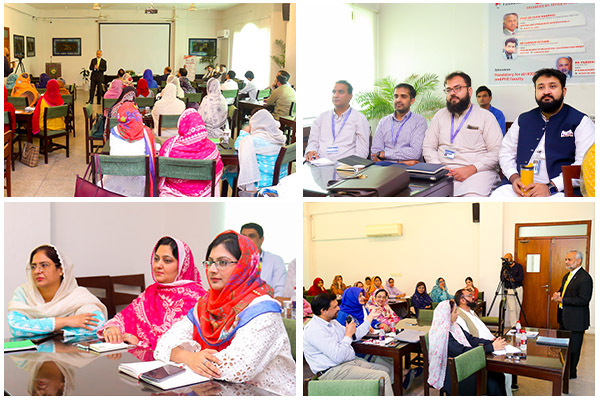
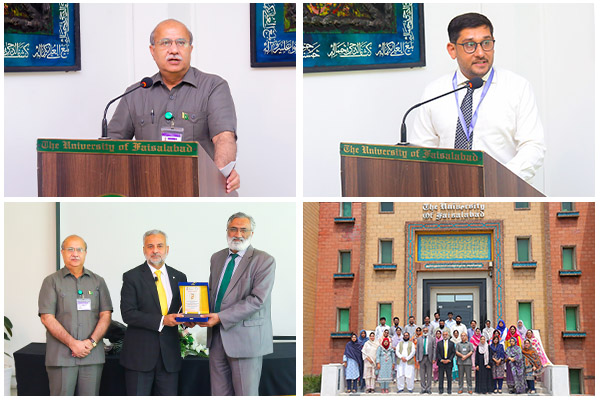
The Office of Research, Innovation and Commercialization (ORIC), The University of Faisalabad, successfully concluded its Capacity Building Series with the final session on "Intellectual Property Management and Patent Filing."
The session commenced with the introduction of the distinguished guests by Prof. Dr. Zahir Ahmad Zahir, Director ORIC. Prof. Dr. Aman Ullah Malik, Rector, The University of Faisalabad, officially welcomed the guests and inaugurated the session.
Mr. Farrukh Amil, Chairman, IPO Pakistan, shared his insights on the importance of intellectual property rights in promoting innovation and economic growth at both national and institutional levels.
The technical sessions featured Mr. Muhammad Ismail, Director of Patents, IPR Enforcement and Genetic Resources at IPO Pakistan, who delivered an insightful talk on effective IP management, covering protection strategies, enforcement mechanisms, and the role of IP in research commercialization.
Ms. Shakra Khurshid, Assistant Controller of Patents at IPO Pakistan, led an informative session on patent filing, guiding participants through application procedures, examination processes, and best practices for securing intellectual property rights.
The event concluded with closing remarks by Prof. Dr. Aman Ullah Malik, Rector TUF, who appreciated the valuable contributions of the guest speakers and expressed gratitude to the faculty for their active participation throughout the series. He emphasized the importance of applying the knowledge gained to enhance research output and foster innovation at the university.
He extended heartfelt thanks to all faculty members who attended the sessions, making the Capacity Building Series a meaningful and impactful initiative. He also commended the ORIC and QEC teams for their dedication and efficiency in ensuring the successful execution of the entire program. Finally, he urged participants to translate this training into real impact—through improved proposals, stronger projects, quality publications, meaningful consultancy, and protected innovations.
